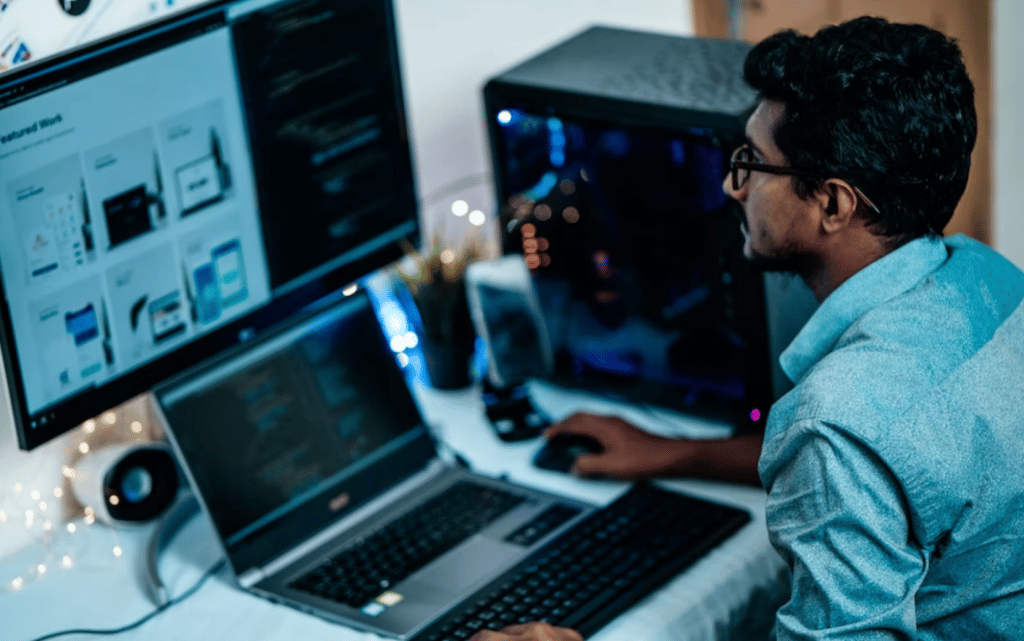Your computer should handle tasks faster so you can get work done whether you’re a student or have a 9-5 job. If your computer isn’t working properly, you don’t have to buy a new computer immediately.
There are some tricks that can help you speed up your computer without buying a new one. Keep reading this blog to find seven actionable tips that will boost your PC’s performance in no time – let’s dive in!
1. Check the PC Components
A burned-out PC component might be the reason why your computer is not working properly. For example, if one of the RAMs in your PC has stopped working, your computer will not be able to work properly, and it might not even boot up in some cases.
You should learn how to check ram memory to fix any performance issues caused by RAM. Make sure you also check other components like the Hard Drive of your PC so you can replace problematic PC parts with new ones.
2. Get Rid of Viruses and Malware
Viruses and malware can get access to your files and slow down the performance of your PC by sending and receiving data over the internet. Before you think about buying a new computer, you need to check whether there’s a virus in your computer and if you can get rid of it.
Using a malware and virus removal tool is the simplest way you can remove viruses from your computer. Set some time aside and learn how to compare antivirus programs so you can pick the best antivirus software.
3. Remove Unwanted Files
Some PC users have the habit of not deleting items from their computers. All the files that you don’t use regularly bog down your PC and lower its performance. The presence of unwanted files on your PC might be to blame for PC performance problems.
An easy way to boost your PC’s speed is to remove unwanted files. Doing so will allow your computer to perform tasks faster, and you will be able to get work done instead of waiting for your PC to respond.
4. Uninstall Apps You Don’t Use
Unwanted applications not only clutter your PC’s storage but also slow down its performance. The apps you don’t use daily still might be running activities in the background, which can make your PC respond slower.
A simple way you can speed up your PC is by uninstalling any programs you don’t use. Open the Task Manager on your PC and check all the installed programs. Uninstall any programs that you no longer want to use.
5. Update Your PC
Your PC can perform slower if you have not updated it in a long time. Regular PC updates come with bug and security fixes that allow your computer to run faster. Connect your PC to the internet and check for any pending updates.
Your computer will not restart on its own once updates are downloaded. Schedule the restart out of your working hours, so you don’t have to wait for the finishing of the installation process.
6. Reduce the Number of Startup Processes
Many apps start working as soon as you press the Power Button on your PC. These apps interfere with the regular booting process of a PC and slow it down. If you want your computer to run faster, you have to ensure that you disable all the apps that turn on when your PC starts.
You can disable any unwanted apps from getting active on PC startup by heading to the Task Manager. Click on the Startup tab to see the list of all programs that turn on as soon as your PC starts. Disable unwanted programs, so your computer boots up faster and performs efficiently.
7. Clear Temporary Files
Temporary files are created by apps on your PC to run faster. If not deleted on time, temporary files can bog down your storage and slow down the performance of your PC. This is why you need to clean temporary files from your computer every now and then to boost its performance.
Here’s how to remove temporary files from your Windows PC:
- Press the Windows key and R key simultaneously.
- Write “temp” in the box that appears.
- Select all the files that show up.
- Right-click and press Delete to remove temporary files.

